
Publish time: Sat Apr 01 14:27:08 CST 2017
On March 22 2017, the 7th Forum on Finance and Investment: Law and Practice – Recent Developments in Investment Arbitration organized by the Beijing Arbitration Commission / Beijing International Arbitration Center (the “BAC”) was held successfully. Senior international lawyers experienced in the area of investment arbitration were invited to this event, where they provided interpretation of the up-to-date hotspots of investment arbitration to the audience. Dr. Chen Fuyong, Deputy Secretary General of the BAC delivered an opening address on behalf of the hosting institution.
With the emergence of well-known cases such as the Yukos case, Ping An Life Insurance Company of China, Limited and Ping An Insurance (Group) Company of China, Limited v. Kingdom of Belgium, Beijing Urban Construction Group Co. Ltd. v. Republic of Yemen, Ansung Housing Co., Ltd. v. People’s Republic of China, investment arbitration has become a hot field attracting wide attentions. As commented by Mr. Patrick Zheng in his speech, “the supreme honor of an arbitrator lies in how many investment arbitrations s/he has heard”. Because of its unique features in legal structure, law application, jurisdiction, composition of the arbitral tribunal and so forth, investment arbitration, based on complex legal relationships and case facts, becomes “the scope most suitable to demonstrate lawyers’ competence” as commented by Dr. Chen’s in his speech.
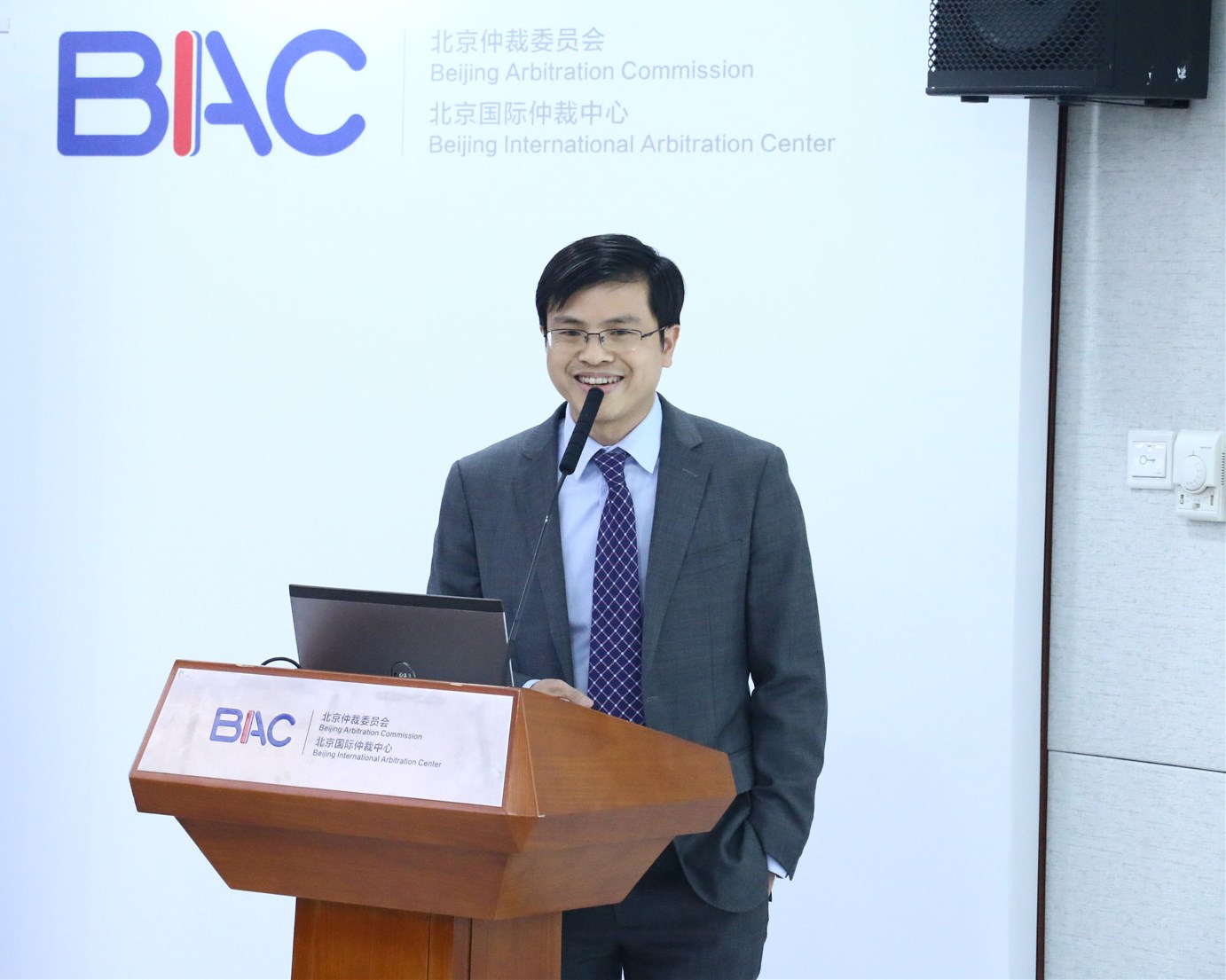
Dr. Chen Fuyong
The forum convened focusing on the fundamental theory of investment arbitration and the study of latest cases. Mr. Maurice Kenton outlined the main points of investment dispute resolution system that is composed of domestic dispute resolution and international dispute resolution and the recognition and enforcement of investment arbitration awards at the start of his speech. He interpreted the substantive protection of investors in international investment by reference to bilateral investment treaties to which China is a signatory. He thought that the purpose of concluding bilateral or multilateral trade treaties is to strengthen investment and trade exchanges between signatory states, which is of great significance to the economic and trade links and the protection of investors.
Thereafter, Mr. Prakash Pillai shared his understanding of Sanum Investment v. Laos that has recently generated extensive discussion from perspectives of both substantive law and procedural law. From the perspective of procedural law, Mr. Pillai introduced the procedures Singapore court adopted in dealing with the case, the issue of jurisdiction and the key date principle for evidence admission. From the perspective of substantive law, Mr. Pillai made interpretation of the rules of state succession and succession of treaties, specifically starting from international conventions, the history of the Macao issue, and on that basis analyzed the Singapore court’s finding on the applicability of the China-Laos Bilateral Investment Treaty. From his profound and clear interpretation, the audience had an in-depth understanding of this hot case, and a further understanding of the vivid and attractive law application and fact finding in investment arbitration.
Next, Mr. Dennis Wong analyzed Hong Kong courts’ application of the law rules of state immunity and legal issues arising from the waiver of state immunity, through a case heard by Hong Kong court – Democratic Republic of the Congo and others v. FG Hemisphere Associates LLC. He pointed out that factors to be considered in deciding whether an entity (state-owned enterprise) enjoys the right of state immunity should include its control degree by the state, whether it has the right to dispose of state-owned assets, and whether it could bear civil liability independently. In his conclusion, Mr. Wong pointed out that in cases where governmental authorities or other entities with state immunity are engaged, Hong Kong is not an ideal seat for dispute resolution for the counterparties.
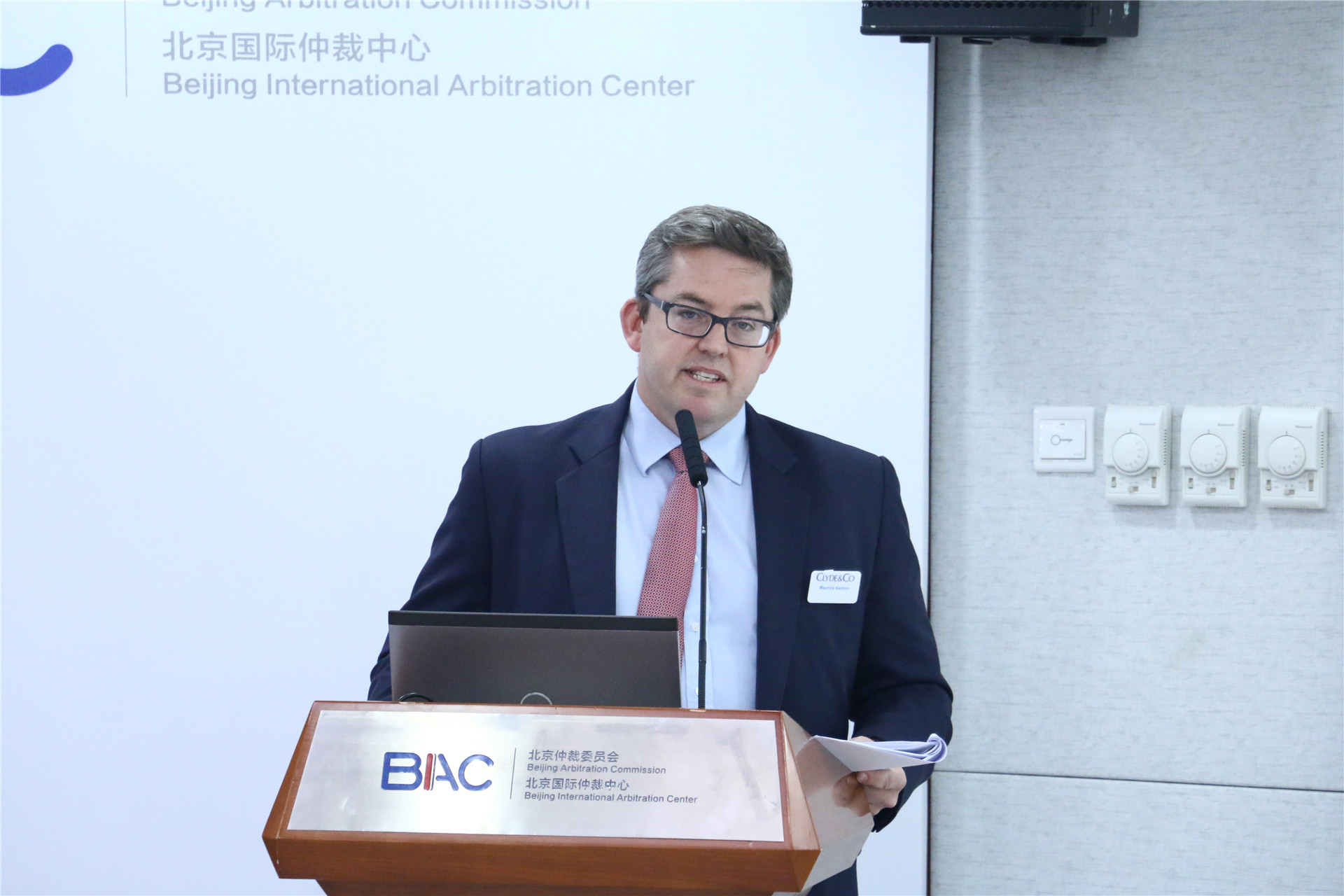
Mr. Maurice Kenton
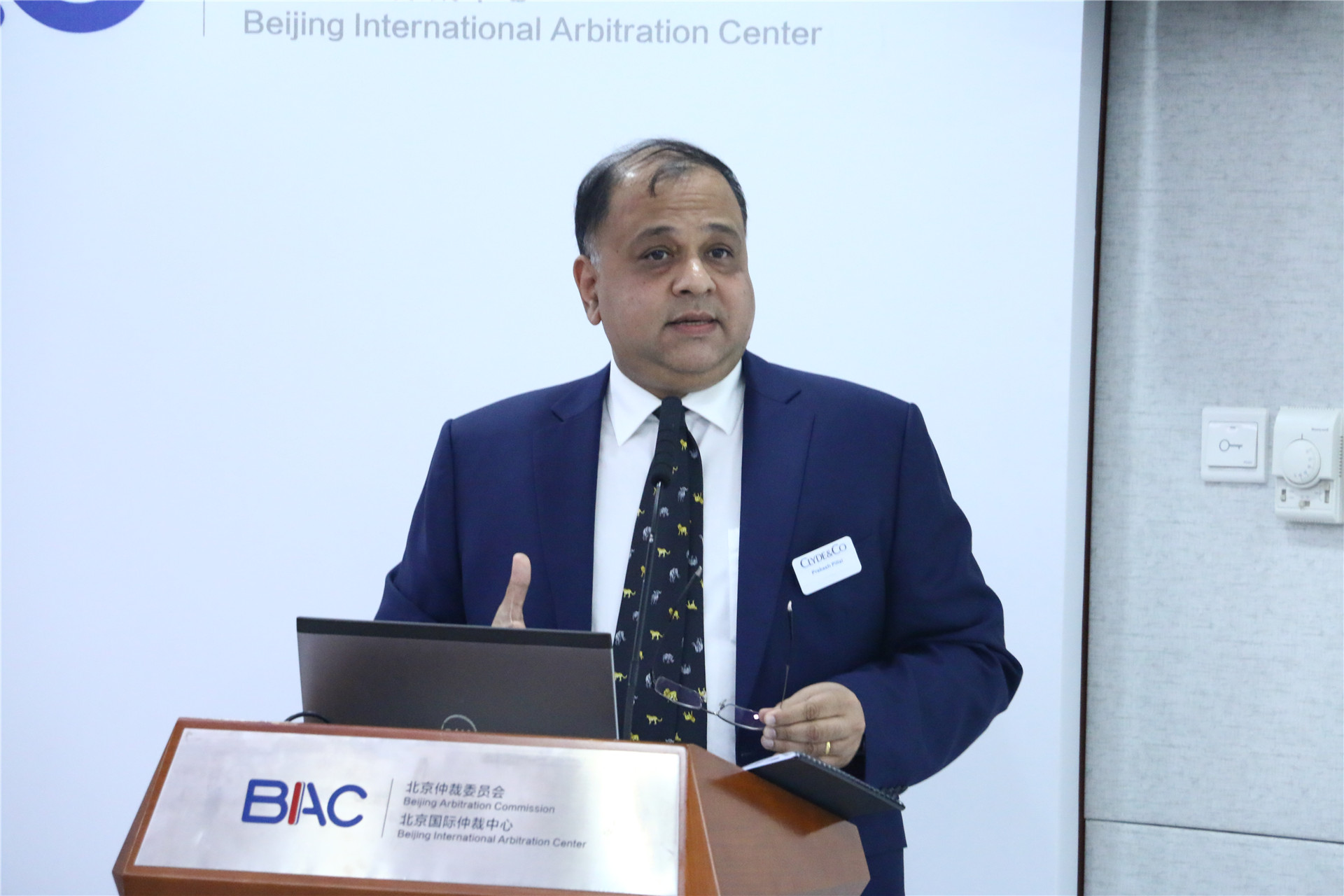
Mr. Prakash Pillai
From the angle of treaty interpretation and case study, Mr. Patrick Zheng provided an analysis of the scope of investment arbitration as agreed in bilateral treaties to which China is a signatory. He started with the historical evolution of Sino-foreign bilateral investment treaties, and then explored the evolution of investment arbitration’s scope. Meanwhile, he pointed out that the restriction on investment scope will lead to the partition of dispute resolution means that is unusual in practice, and the mere agreement in treaties on referring levy compensation disputes to arbitration is not the best solution, nor has it been adopted in most bilateral treaties nowadays.
At last, Mr. Richard Bell analyzed investment arbitration costs. Mr. Bell stressed that the assessment of costs is particularly important for investment arbitration that is a special field, including the definition of costs’ relevance to the case and respective assessments of internal and external costs. As to the issue of cost recovery, he suggested that it should be clearly set out in the contract the burden of costs, so as to prevent the difficulty of cost recovery in the absence of law or arbitration rules thereon.
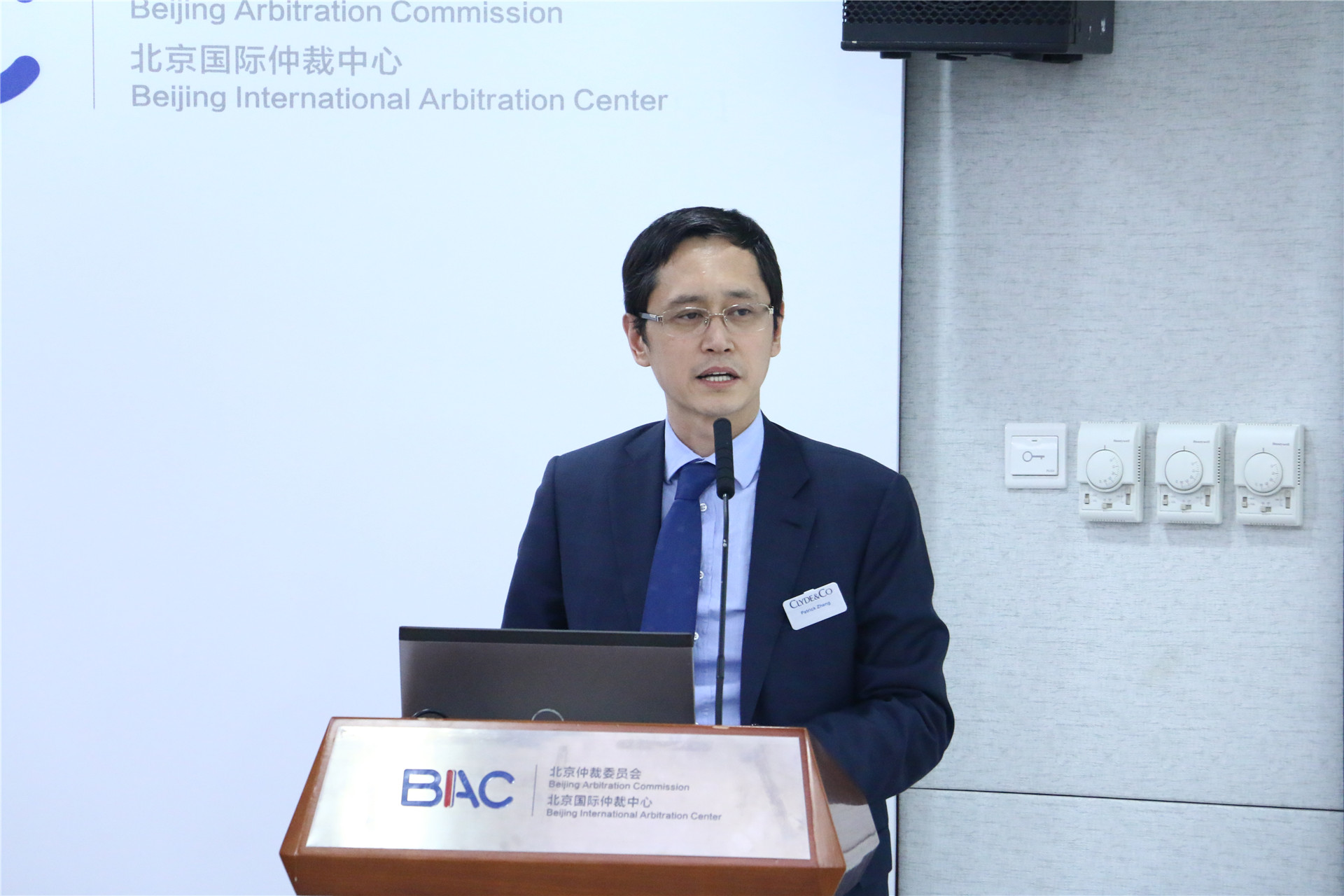
Mr. Patrick Zheng
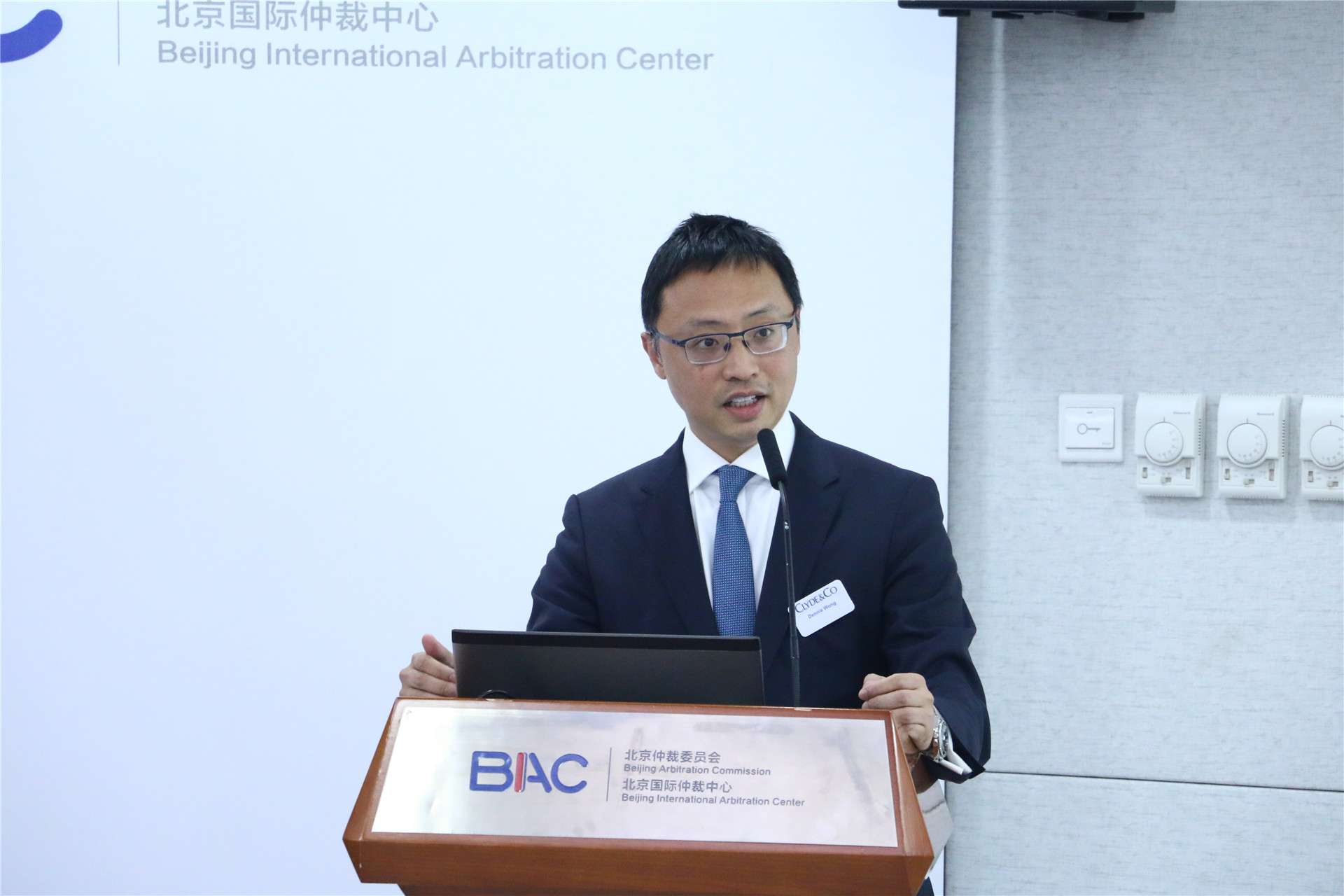
Mr. Zihuai Huang
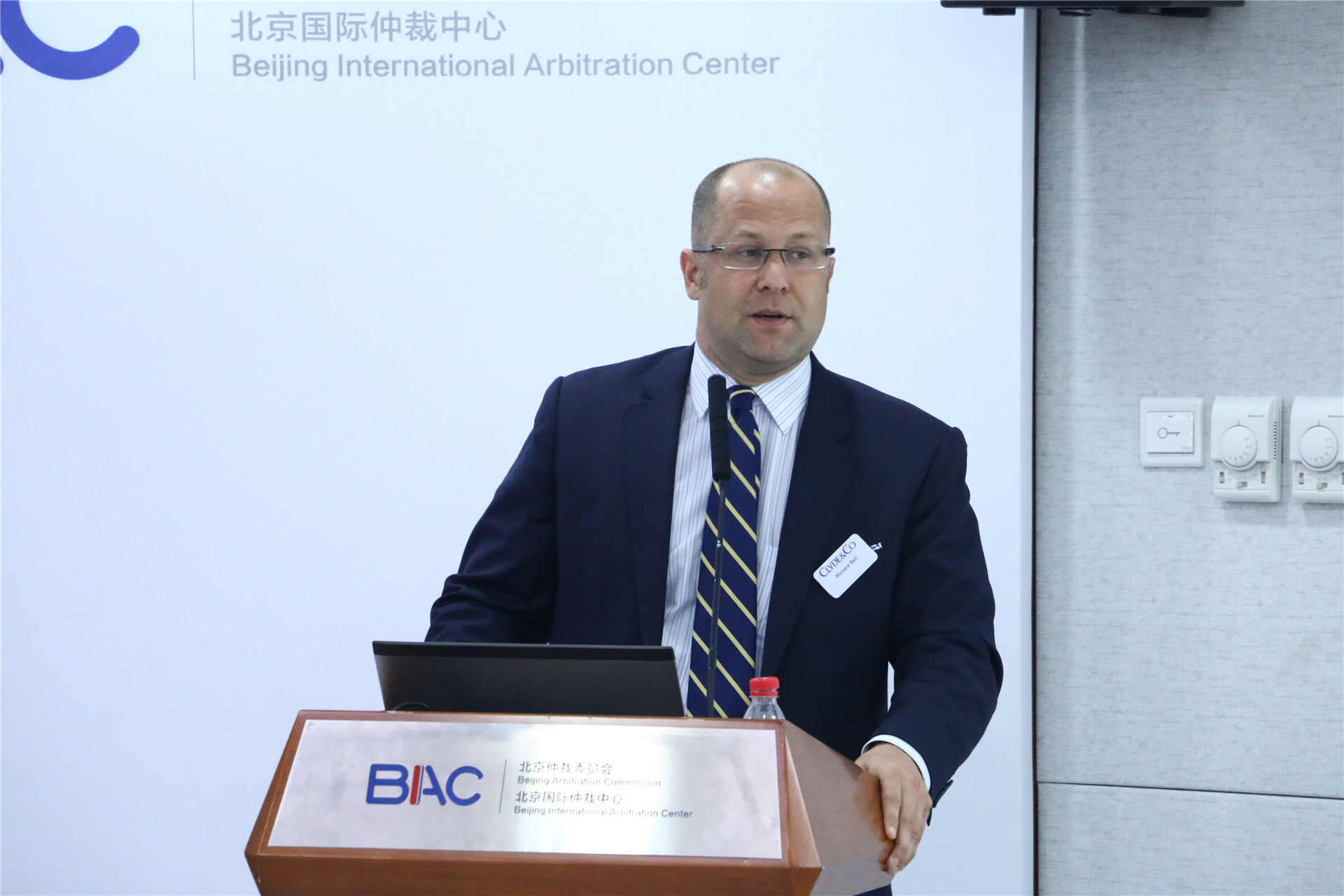
Mr. Richard Bell
At the end of the forum, the audience had active exchanges with the speakers on issues such as third party funding, the identification of investor’s nationality and the like.
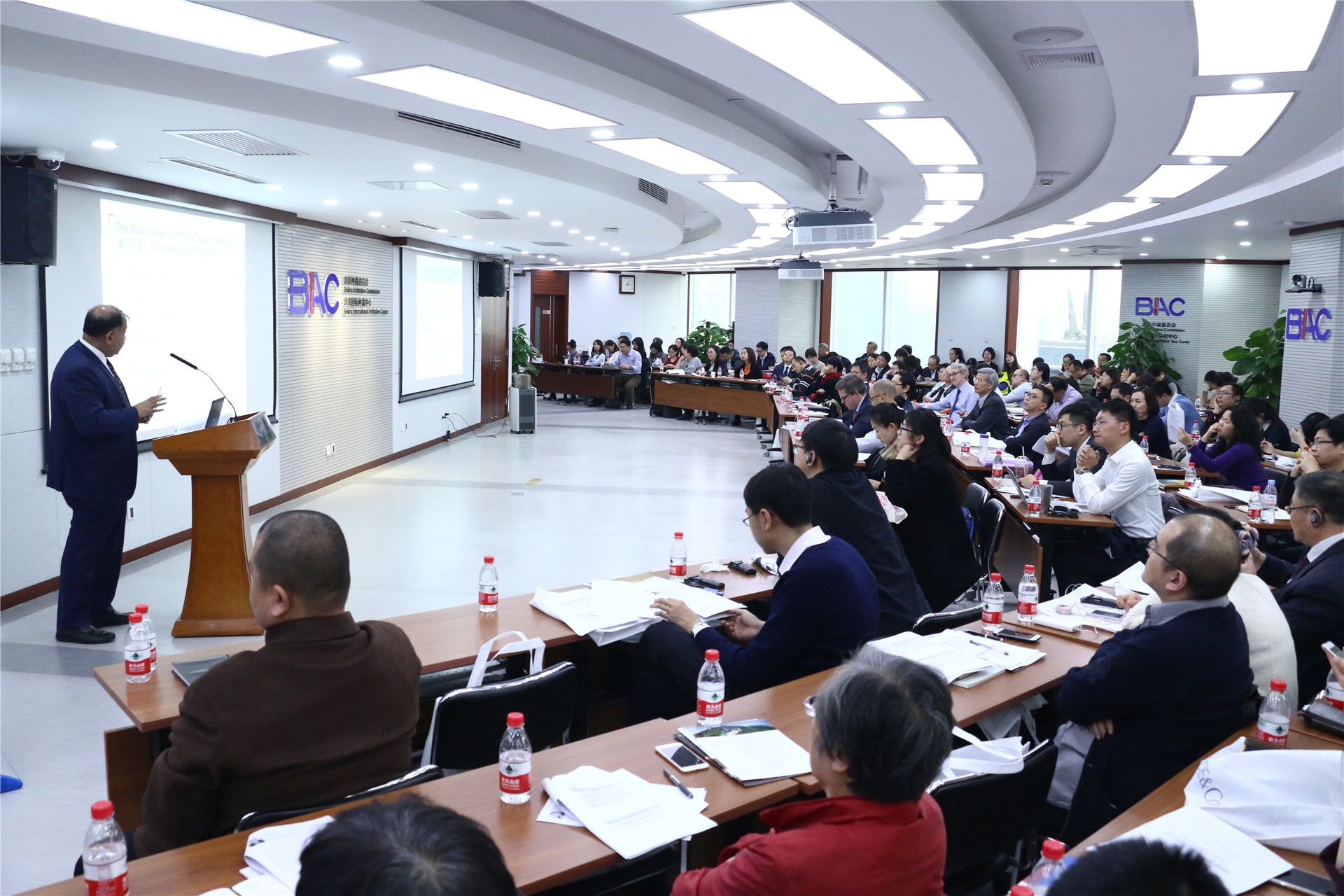
The forum
Exactly as Dr. Chen said in his welcome speech, the BAC has always been paying attention to and making research on investment arbitration, as well as assisting the Chinese lawyers to share the market of high end international dispute resolution services such as investment arbitration, by way of inviting internationally famous investment arbitration practitioners to share their experience and to analyze the hotspots and thereby enriching the communication and exchange on investment arbitration within the domestic arbitration circle. The BAC welcomes colleagues from various circles who are interested in diversified dispute resolution to continue to pay attention to the BAC’s website and WeChat platform for more information.